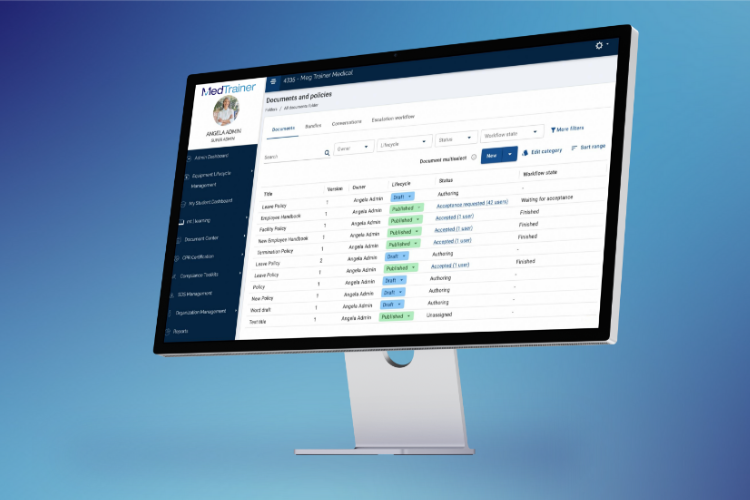Every year, more than 200,000 Americans die from healthcare injuries, accidents, errors, and infections – that’s more than 500 people a day. The examples of incidents in healthcare don’t end there. According to the National Institutes for Health, up to 9,000 people die annually from medication errors. Another 75,000 perish from hospital-acquired infections.
It’s estimated that more than half of all deaths could be prevented with better incident management and reporting. In this blog, I’ll share real-world examples of incidents in healthcare and how incident reporting software helps healthcare organizations avoid problems before they occur.
Healthcare Incident Severity Levels
Classification and severity levels of incidents vary depending on the healthcare organization or regulatory body. Generally, healthcare organizations use five incident severity levels:
- Level 1: Minor or near-miss events that occur while providing medical care but are detected and corrected before a patient is harmed.
- Level 2: Moderate errors that could potentially hurt patients. These typically require some intervention or additional monitoring to prevent further harm.
- Level 3: Serious events that could cause significant harm to patients. May require immediate intervention, investigation, and follow-up actions.
- Level 4: Severe incidents that result in patient harm and often require thorough investigation and corrective actions. May involve significant organizational response and communication.
- Level 5: Though not universally defined, these incidents are most severe and result in catastrophic patient harm or death. Also called “never events,” they typically trigger a comprehensive investigation, regulatory intervention, and significant organizational prevention response.
Real-World Examples Of Incidents In Healthcare
Medication Error
An 81-year-old man was transferred from an outside hospital and admitted to the intensive care unit (ICU) with a gastrointestinal bleed. The ICU physician referred the patient for a diagnostic colonoscopy.
The ICU nurse mistakenly selected a jug of dialysis liquid rather than a polyethylene glycol solution commonly used to clean the colon for colonoscopy. She administered about 8 ounces of the dialysis liquid orally before the end of her shift.
The patient complained of the solution’s taste and was “unable to tolerate” more significant amounts. The ICU physician said the patient had to take the total amount. The medication mix-up was identified around midnight, and the patient died about 7 hours later.
Surgical Error
A 52-year-old man was admitted to an emergency room with pneumonia and bronchitis. A few days later, he underwent a tracheotomy to insert a breathing tube.
As the surgeon was beginning the operation, his electronic scalpel sparked the oxygen supply and lit the patient’s chest and neck on fire. He suffered second-degree burns from which he recovered.
The NY Post reported that the surgeon did not mention the burns in a post-surgery report and told reporters he was unaware of the burns.
Communication Error
A 28-year-old woman was admitted for treatment of necrotizing fasciitis – or flesh-eating disease. She was fitted with a catheter that eventually became infected. Medical staff observed the infection but did not communicate amongst themselves about changing it.
The woman was unable to speak due to a tracheotomy, doctors reported she was “difficult to deal with” and refused to have the catheter removed – her sister denied the allegation. Five days after the infection was first noticed, the woman died.
The coroner reported the patient developed septicemia three days before the catheter was finally removed. He told a judge that there was “a failure in the system of observation, monitoring, and documentation of her deteriorating condition that resulted in a lost opportunity to render further medical attention.”
Better Reporting Can Reduce Healthcare Incidents
Each of the examples I shared above has one thing in common: they could have been prevented with better incident management and reporting. Think of incident reporting as a continuous process improvement tool.
Clear documentation is key. Incident reports open the door to individualized employee training, new processes to close compliance gaps, and efficient feedback channels that can help mitigate errors when they happen and help prevent them before they occur.
Many of these incident reporting process improvements can be achieved with a digital incident reporting solution. It can help to create the proactive reporting culture you desire, eliminate delays, identify trends, and resolve issues more quickly.
Ready to take a proactive approach to incident reporting? MedTrainer offers an all-in-one compliance solution with the only healthcare-specific incident reporting software. Contact us to learn more.
